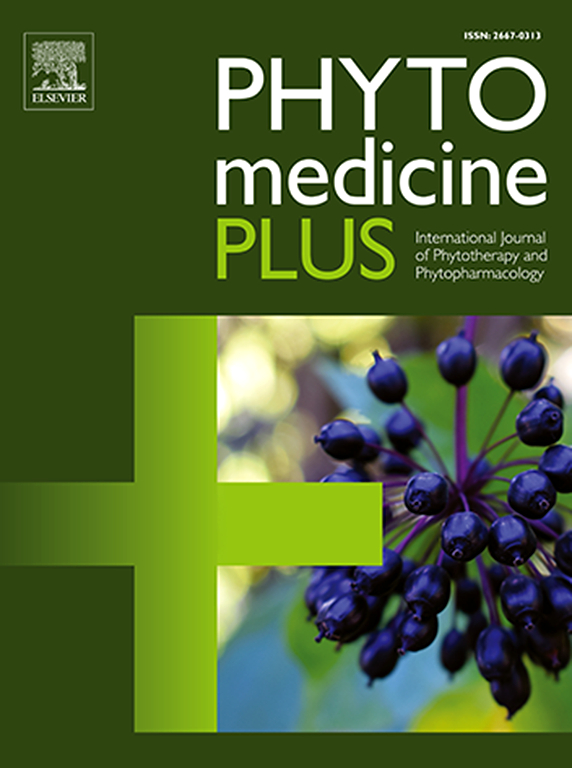将生物信息学与网络药理学相结合,结合实验验证分析,揭示麻杏石肝汤治疗病毒性肺炎的药理机制
Q3 Pharmacology, Toxicology and Pharmaceutics
引用次数: 0
摘要
病毒性肺炎主要是由病毒感染引起的肺部炎症引起的,临床上常见呼吸道合胞病毒肺炎和腺病毒肺炎。麻星石肝汤是一种传统的中草药配方,许多研究人员已经证实了它对病毒性肺炎的治疗作用。然而,其治疗病毒性肺炎的机制仍有待阐明。本研究运用网络药理学的方法探讨了MXSGT及其生物活性化合物的治疗效果和治疗靶点。通过MXSGT-compound-target和靶蛋白-蛋白相互作用网络,初步鉴定了143种活性蛋白和689种活性蛋白相互作用方式。KEGG富集分析揭示了27条信号通路(P <;0.05),包括HIF-1α信号通路、PI3K-Akt信号通路、FoxO信号通路和toll样受体信号通路。通过生物学实验证实,与病毒性肺炎小鼠相比,MXSGT组肺指数明显降低,肺组织中炎症因子含量明显降低。MXSGT可能通过抑制PI3K/Akt/HIF-1α途径对病毒性肺炎发挥治疗作用。本文章由计算机程序翻译,如有差异,请以英文原文为准。
Integrating bioinformatics with network pharmacology and experimental validation analysis to reveal the pharmacological mechanism of Ma-xing-shi-gan-tang in treating viral pneumonia
Viral pneumonia is mainly caused by lung inflammation caused by viral infection, and respiratory syncytial virus pneumonia and adenovirus pneumonia are commonly seen in clinical practice. Ma-xing-shi-gan-tang (MXSGT) is a traditional Chinese herbal formula, and many researchers have confirmed its therapeutic effect on viral pneumonia. However, the mechanism of treating viral pneumonia still needs to be elucidated. In this study, network pharmacology has been used to explore the therapeutic effects and therapeutic targets of MXSGT and bioactive compounds. Initially, 143 active proteins and 689 ways of interaction between active proteins were identified through the MXSGT-compound-target and the target protein-protein interaction network. KEGG enrichment analysis revealed 27 signal pathways (P < 0.05), covering the HIF-1α signaling pathway, PI3K-Akt signaling pathway, FoxO signaling pathway, and Toll-like receptor signaling pathway. Through biological experiments, it has been confirmed that compared with the mice of viral pneumonia, the lung index of the MXSGT group is significantly reduced, and the content of inflammatory factors in lung tissue is reduced considerably. MXSGT may exert therapeutic effects on viral pneumonia by inhibiting the PI3K/Akt/HIF-1α pathway.
求助全文
通过发布文献求助,成功后即可免费获取论文全文。
去求助
来源期刊

Phytomedicine Plus
Medicine-Complementary and Alternative Medicine
CiteScore
3.70
自引率
0.00%
发文量
178
审稿时长
81 days
期刊介绍:
 求助内容:
求助内容: 应助结果提醒方式:
应助结果提醒方式:


